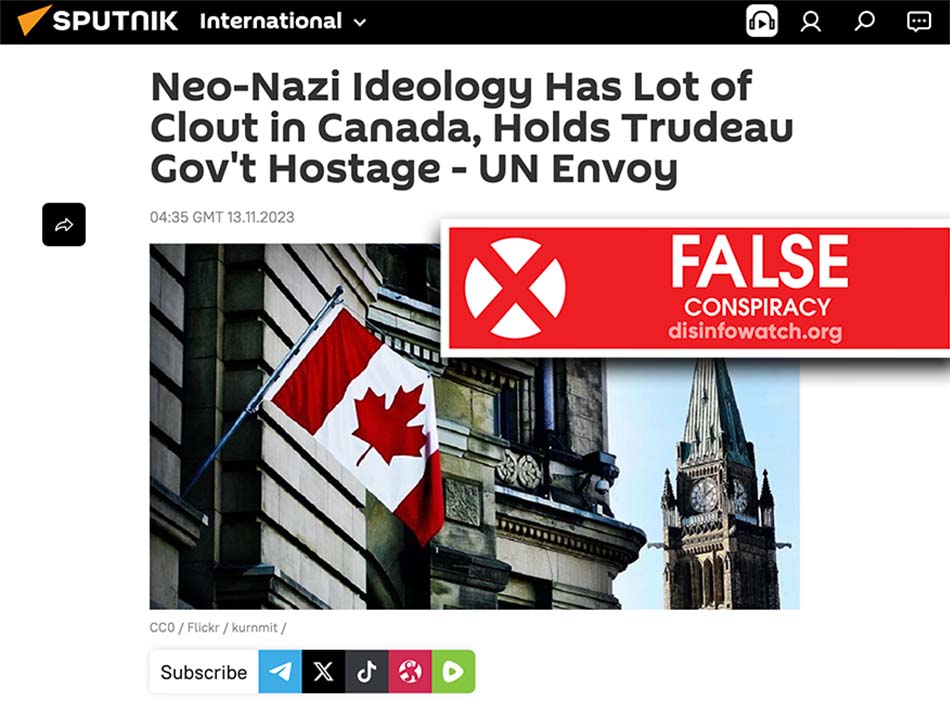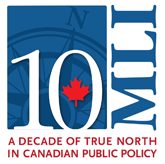
The article erroneously contends that Canada is being held “hostage” by Nazi ideology, purportedly propagated by the descendants of Nazis and collaborators who emigrated to the country.
Adding to this disinformation, Russia’s deputy ambassador to the United Nations, Dmitry Polyanskiy, amplifies the Kremlin’s conspiracy narrative by exploiting a recent controversy in Canada’s Parliament. Polyanskiy issues an ominous warning, stating, “These things are very widespread, and Canada is actively supporting them. The events witnessed in the Canadian Parliament are merely the tip of the iceberg. If Canadian society delves deeper, many secrets will be revealed.”
Human rights legal experts, like Yonah Diamond at the Raoul Wallenberg Centre and Norwegian Judge and current Chair of the UN’s Independent International Commission of Inquiry on Ukraine, Eric Mose, have both argued that the Kremlin’s anti-Ukrainian propaganda, including the indiscriminate use of the “neo-Nazi” label is an incitement of hate and genocide.
“Recurrent pro-Kremlin disinformation targeting former Canadian Foreign Minister Chrystia Freeland and painting her as a Nazi sympathiser because of her grandfather’s presumed activities.
Freeland has been a constant target for Russian disinformation. She is banned from travelling to Russia, as part of the tit-for-tat game of escalating sanctions that the Russians played in the wake of Russia’s illegal annexation of Crimea.
Tales about Freeland’s grandfather Michael Chomiak have been circulating on pro-Kremlin social media accounts and websites since she joined the office of Foreign Affairs on 10 January 2017. There is no evidence that Chomiak wrote any of the anti-Jewish diatribes published in the Krakivski Visti newspaper. After the war he told his family he had worked with the anti-Nazi resistance, helping its members get false papers.”

